
Spent six months looking at the role of social media in the division we see in the United States with @AuthorPMBarrett & Grant Sims at the NYU Stern Center for Business & Human Rights. We talked to 40+ experts. Here is our report and recommendations to platforms and government:
https://twitter.com/NYUSternBHR/status/1437440460830674948
The report finds that, while rising levels of polarization in the U.S. predate and are not mainly caused by social media, the platforms have played an important role in exacerbating the trend in recent years. techpolicy.press/how-social-med…
.@axios features the report in an article, "The anatomy of social media's mad-making machine", written by @margarethmcgill. Read it here: axios.com/social-media-p…
.@rebeccaklar_ wrote about some of the conclusions of the report for @thehill:
thehill.com/policy/technol…
thehill.com/policy/technol…
Not all polarization is necessarily bad: campaigns for social & racial justice are often polarizing. But while polarization isn’t necessarily unavoidable or ultimately unproductive, we shouldn't be indifferent to social media’s effect in stoking division: techpolicy.press/how-social-med…
Part II assesses evidence that many phenomena related to polarization are in fact asymmetrically expressed on the right, and it acknowledges racial animus is a key driver. This is important to the context/threat landscape in which platforms operate.
techpolicy.press/how-social-med…
techpolicy.press/how-social-med…
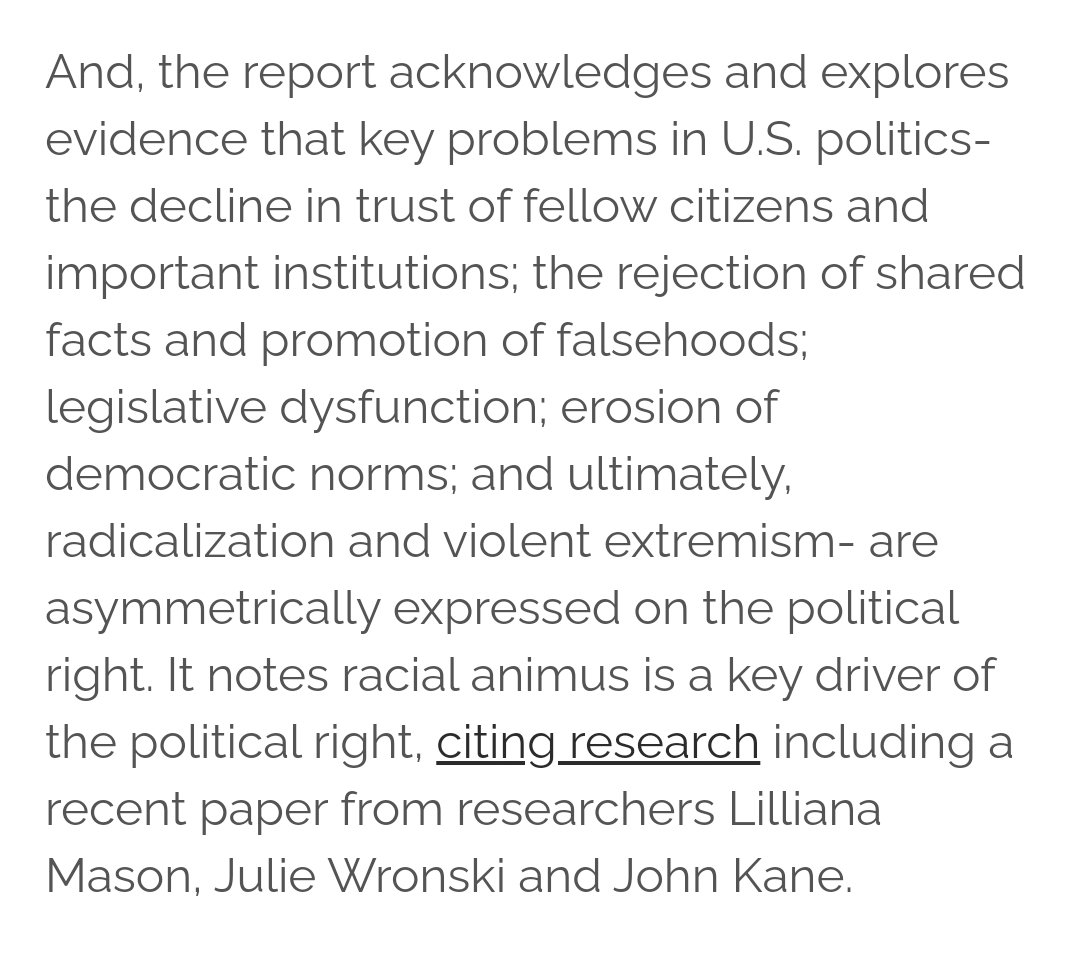
And I'd be remiss if I didn't point out what we learned talking to @shannimcg @kreissdaniel. It's only worth addressing polarization insofar as it creates space for us to take on more fundamental issues. @jonathanstray thinks of this in relation to theories on peace building. 

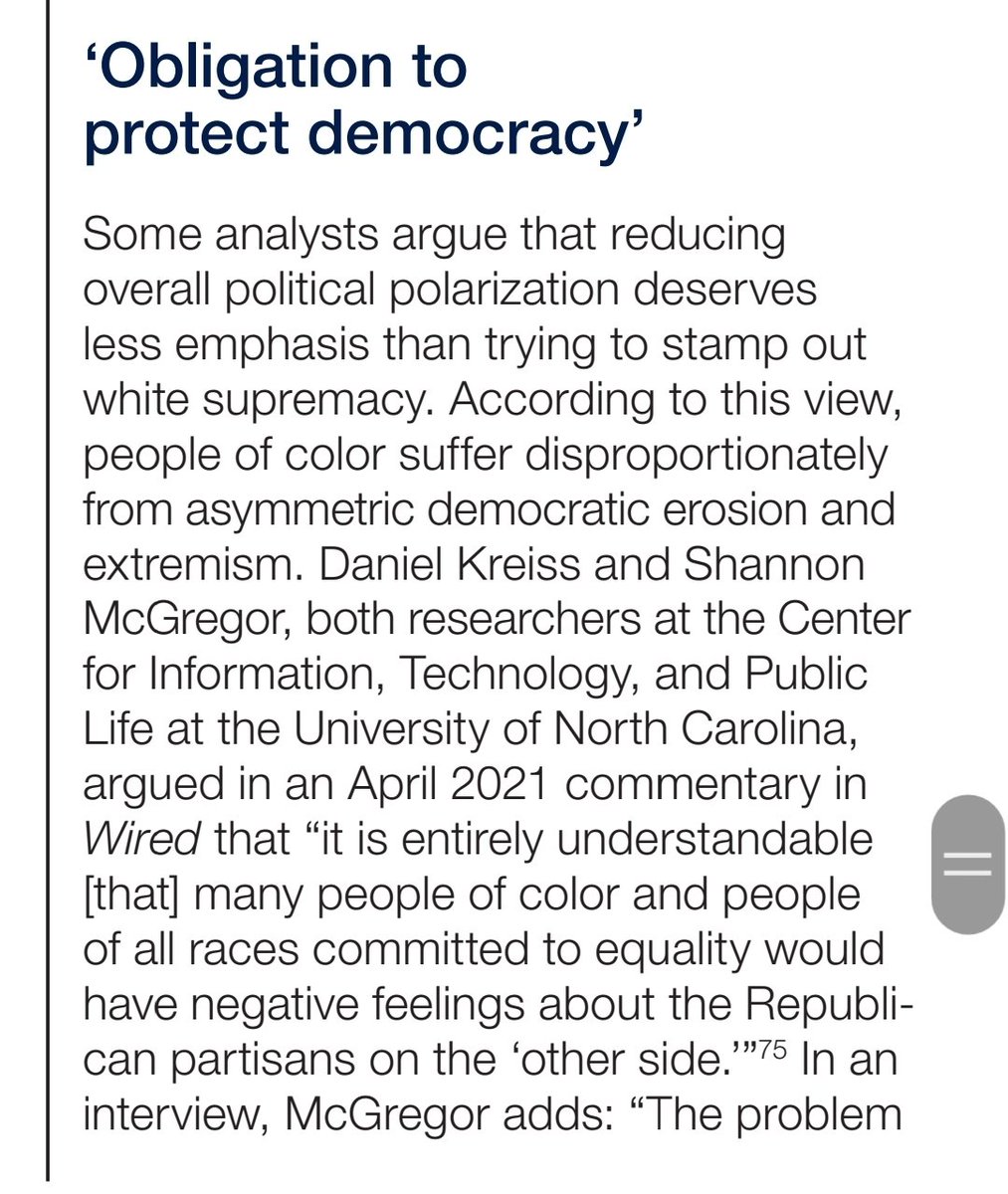
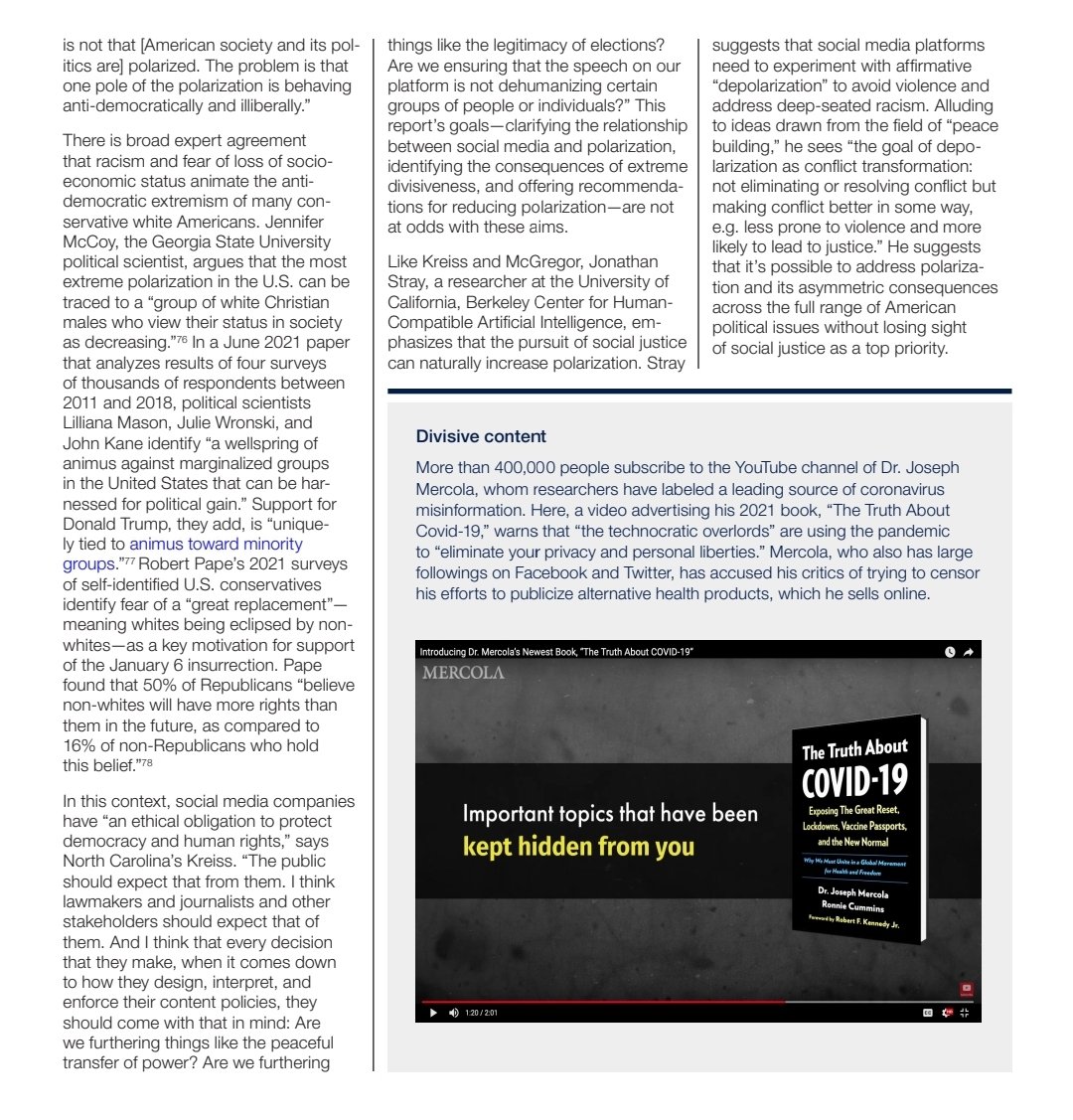
There is no time to waste. Platforms and governments must take urgent action, particularly with regard to efforts to suppress voting or undermine election integrity.
"This is a do-or die moment for American democracy,” @hakeemjefferson a political scientist at Stanford, told me.
"This is a do-or die moment for American democracy,” @hakeemjefferson a political scientist at Stanford, told me.
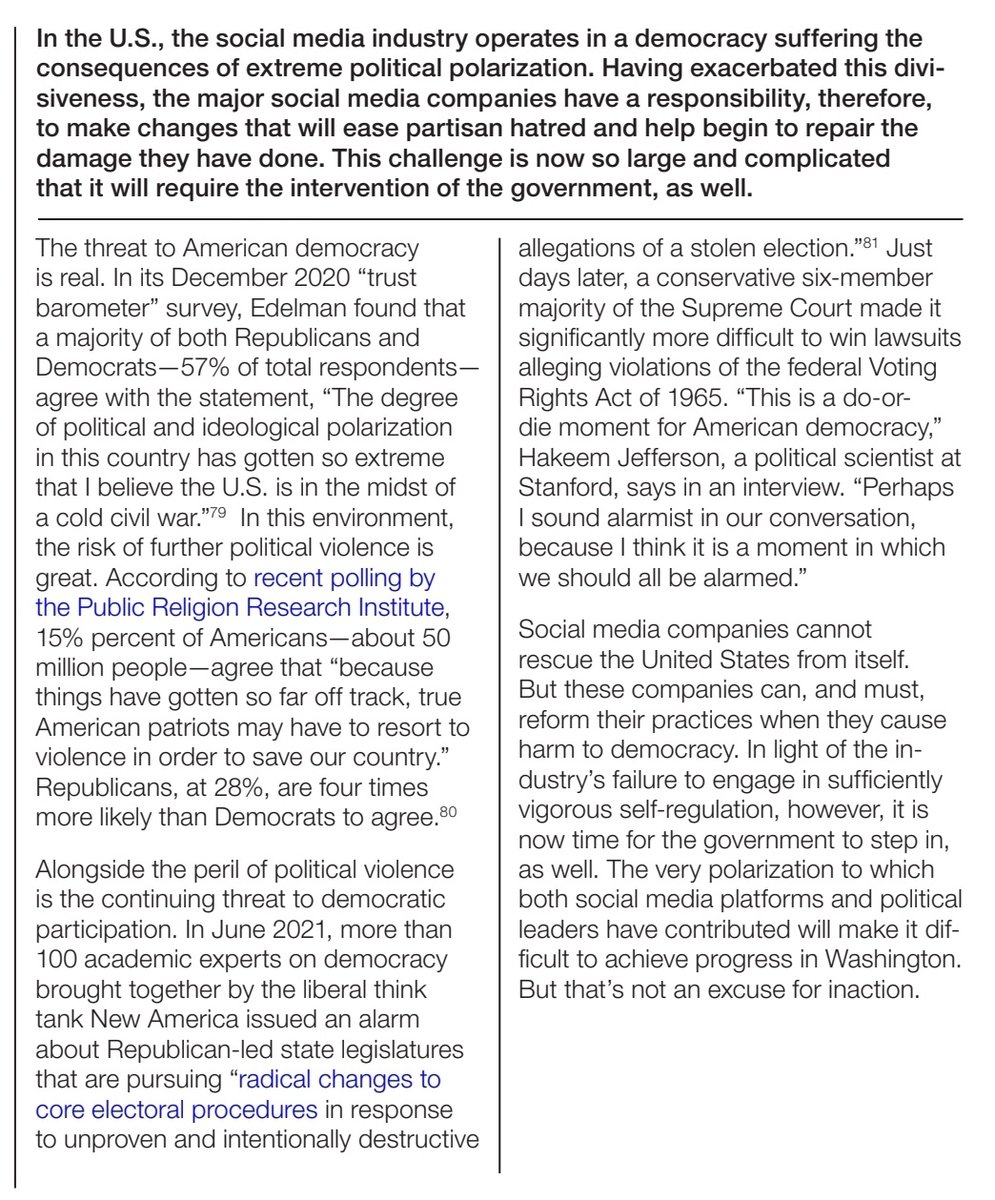
The full report contains ten recommendations to the White House, Congress and the social media platforms. Check them out here. Thanks to @AuthorPMBarrett & @mikehposner for the opportunity to learn about these issues. bhr.stern.nyu.edu/polarization-r…
So many to thank. In addition to those above & below, I'm ++ thankful to @chris_bail @marichal @MarietjeSchaake @katestarbird @daphnehk @noUpside @ghoshd7 @RebekahKTromble @informor @j_a_tucker @mutalenkonde @mariaressa @fadiquran @TaliaStroud for educating me on this & more. 
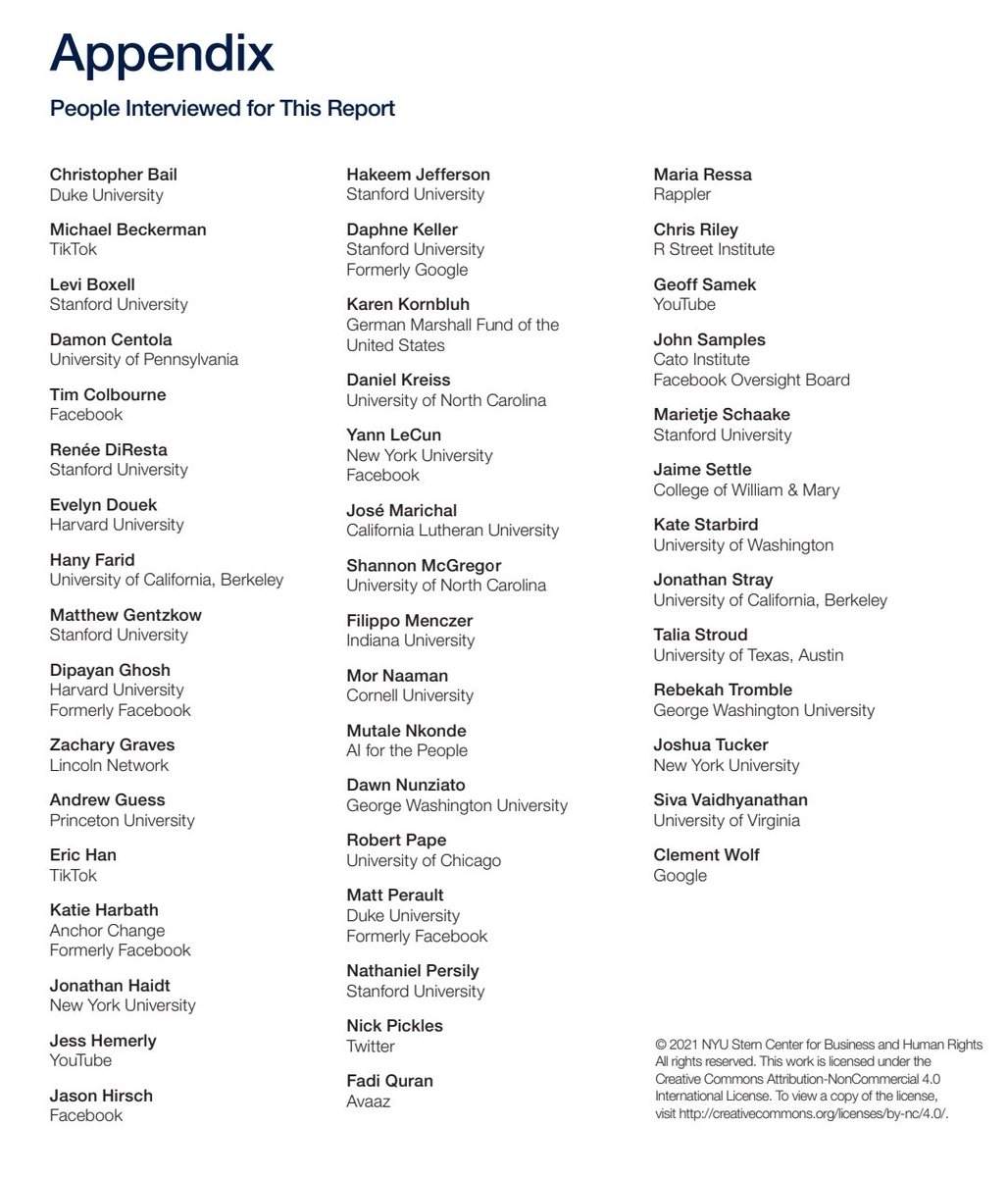
• • •
Missing some Tweet in this thread? You can try to
force a refresh






